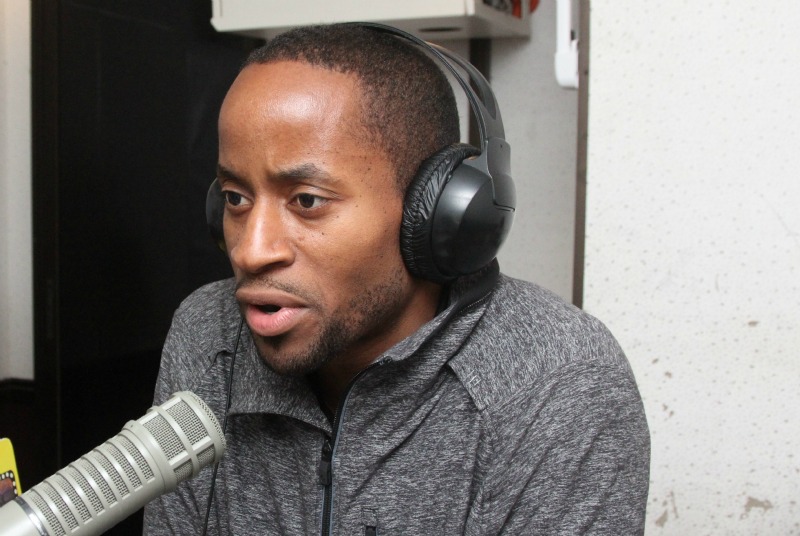
The Whistle and a Clipboard podcast was created to “provide a place for coaches to learn from one another.” With, I want to give a big shout out to Jason Oates for creating this platform for so many coaches to share their point of view and grow sport coaching – together!
Highlights:
In this interview, I discuss:
- My coaching WHY
- On failure
- “The Fundamental Four”: The coaching skills essential to success
- Practice planning, dynamic (creative) starts and flow
- Coaching techniques everyone should add to their toolbox
- What I’m reading
Quotes and Takeaways
- Trevor Ragan (Train Ugly) shared recently that “Skills are grown not given.” I’d like to add that: Lessons are learnt not taught.
“The greatest skill is learned, more than it is taught. And the great teacher realizes this.”
—Dr. Kapil Gupta
- “Truth when delivered with grace is enriching, it gives purpose.”
- Sir Ken Robinson: “The job of a gardener is not make a plant grow. The job of a gardener is to create optimal conditions.” Similarly, coaching is about creating optimal learning conditions.
- Create a safe learning environment in practices. Allow for mistakes to happen. (Celebrate them!) Because that’s where learning lives.
- Truth when delivered with grace is enriching. It gives purpose, focus, it’s informative. It’s about having the crucial conversation; although it may be uncomfortable.
- Avoid being the frog at the bottom of the well. Let your past experiences inform you, but not define you. See the value in them, but know that you can still grow. You don’t always have to do things because they’ve it’s always been done that way. Seek out the outliers and strive to be the ‘dumbest person in the room’.
We fall prey to: Coaching the way were coached. Parenting the way we were parented. That’s not – necessarily – a way that creates new possibilities for you as a coach or your players.
On an essential coaching skills:
- By my definition, a skill is anything that can be improved.
- The greatest room for improvement can be found in developing an athlete’s approach. It’s the intangibles… What’s one’s approach to adversity and unfairness? Sport is FULL of unfairness. Our most important job as a coach is to help players navigate through and handle all the work, adversity, pain, failure, uncertainty, and disappointments that *every* high level athlete has to deal with.
“Sport is FULL of unfairness, and being able to do your best in the face of blatant unfairness without collapse or complaint is an absolutely vital skill to have.”
—Dena Evans
On player development:
- The foundation of player development starts with their approach; that is, the way an athlete thinks about what they’re doing. Think about how your athletes think – when they’re learning a new skill.
- When you look at the dynamics of basketball in both practices and games, a player will spend more time without the ball than they will with it. There’s more dead ball time than there is active time. How are your players maximizing their dead ball time? How are the players who don’t have the ball (i.e. on the bench in a game or on the sideline in practice) contributing or contaminating the learning environment? What are they thinking? What’s their mindset – or approach – in those moments? How are you as a coach shaping that thought process?
On practice planning:
- Start with the end in mind and continually think of the end game; both within the day/week, but broader than that (e.g. who a player can be at the end of the season or beyond your program).
- In practice planning, the next progression needs to build on the last. Your practice should read like a book. The goal is to have things develop sequentially or intuitively so your players can understand the interconnectedness between what’s being done.
- Use dynamic starts. Find ways to get players to flow into the action. Start with a fumble, a dive on the floor, jump ball, deflection, or 1-second advantage. Coach creatively; while avoiding static starts.
- Avoid anything ‘on zero’ or on air—unless you’re introducing a concept for the very first time. [Post Interview Add-on: I recently picked up the term “unopposed” drills or training. @Grant_Jenkins says it well: “Your unopposed training is an excellent indication of how your players will perform in unopposed competition.”]
- “If you have to repeat instructions, you’re doing something wrong.”
- Think about how to better utilize your assistants. The most effective coaches give clear instructions and expectations for how their assistants should be contributing.
- Think about how to create a safe learning environment. In youth sport, this means having an intentional approach to where the placement of parents will be during practice time.
Coaches are teachers are their core. Our classroom is the gym.
Advance Praise
Just listened to a FANTASTIC podcast with @jasonhoates and @SefuBernard! So much to ponder and apply. I plan to listen again.
— Tim Kolodziej (@AnotherCoachK) October 31, 2015
@jasonhoates great episode with @SefuBernard Like drinking from a firehose
— Lyle Kovalenko (@LK_misterK) October 27, 2015
"I refrain from teaching anything technical any time I see his approach waver" love it @SefuBernard
— Paul Cortes (@pcortes64) October 27, 2015
@AnotherCoachK @SefuBernard it's great when you have to listen more than once so you don't miss anything A lot of info in a short window
— Jason Oates (@jasonhoates) October 31, 2015
https://twitter.com/BardBasketball/status/657662606572916736/photo/1